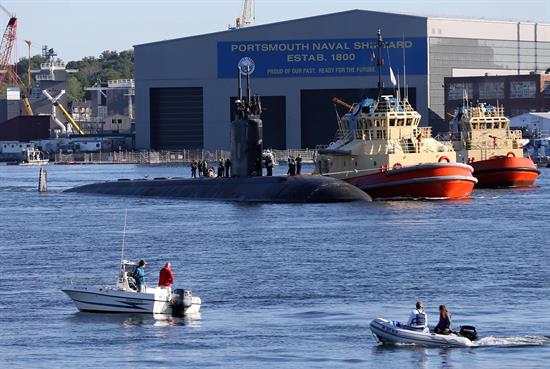Press Releases
Pingree: ‘More needs to be done to combat climate change, not less’Pingree spoke in support of an amendment to the FY2025 Defense funding bill to strike riders that fail to invest in critical climate change programs necessary to protect military installations like Portsmouth Naval Shipyard ‘By kneecapping the administration's ability to address climate change in these executive orders, my colleagues on the other side of the aisle are directly working against our own national security interests,’ she said.
Washington,
June 13, 2024
In the House Appropriations Committee markup of the Fiscal Year 2025 Defense funding bill, senior Appropriator and Ranking Member of the House Appropriations Interior and Environment Subcommittee Congresswoman Chellie Pingree (D-Maine) spoke out against harmful riders in Republicans funding bill. Speaking in support of Congresswoman Betty McCollum’s (D-Minn.) amendment to reinstate climate preparedness funding in the bill, Pingree called attention to rising sea levels in Maine and its impact on military installations like Portsmouth Naval Shipyard (PNSY). Republicans’ Defense funding bill:
Pingree successfully secured language in the bill to support Bath Iron Works operations on the Kennebec River. The amendment affirms the Army Corps of Engineers’ responsibility to dredge the river, which is critical for getting BIW ships to sea. Click here for a summary of the FY2025 Defense Appropriations bill. +++ Thank you very much, Mr. Chair. I want to speak in strong support of the ranking member’s amendment to strike these riders, and I specifically want to talk about striking Section 8160. That's the one that prohibits funding climate executive orders. I'm very proud to have the Portsmouth Naval Shipyard in my district. The shipyard overhauls, repairs, and modernizes our nuclear-powered attack submarine fleet, including our Virginia class subs. Portsmouth is crucial for our national security, as are all naval installations across the United States, in the Indo-Pacific and elsewhere abroad. For Portsmouth, the extreme changes we're experiencing the weather, including tidal flooding, eroding waterfronts and more severe storms, directly threaten their ability to service our nuclear submarines. For those of you who don't have shipyards in your district, you might not know that dry docks are built into the water so that submarines can easily dock before the maintenance compartment is drained by de-watering pumps. However, with drastically rising sea levels, which is true and truly happening on the coast of Maine and in coastal communities around the country. […] And also the increased tidal flooding, nuclear submarines, shipyards are more at risk of having their compartments flooded while the submarines are docked for maintenance or modernization. Thankfully, we have climate resilience programs to avoid that kind of disaster, and more needs to be done to combat climate change, not less. By kneecapping the administration's ability to address climate change in these executive orders, my colleagues on the other side of the aisle are directly working against our own national security interests. The Department of the Navy has been sounding the alarm on climate risks like this for years now. Yesterday, in the SFOPS markup, we discussed how island nations are being swallowed by rising sea level. Our naval installations and readiness capabilities are ... being hindered by that exact same threat. On land, extreme heat impacts our ground forces operations across the globe and limits training at home when conditions make soldiers physically unable to handle the heat in full body armor. Not only is our naval readiness at risk with climate issues at sea, but our land components are also directly impacted by [the] climate crisis. Finally, as everyone in this room knows, increase rising global temperatures are making swaths of land uninhabitable and driving people from across the globe to migrate. Yesterday in the Homeland markup, my colleagues made it clear that the border is one of their top priorities. Then why are we now saying we can't use funds to stop migration by blocking funding to plan for the impact of climate change on migration patterns? The Section 8160 poison pill directly works against our Navy, Army, Marines, Air Force and Space Force. I urge my colleagues to support striking these harmful provisions. With that, I yield back. ### |

